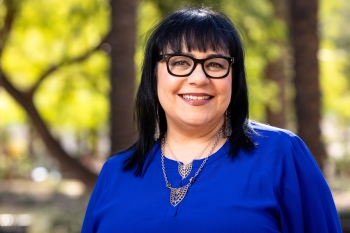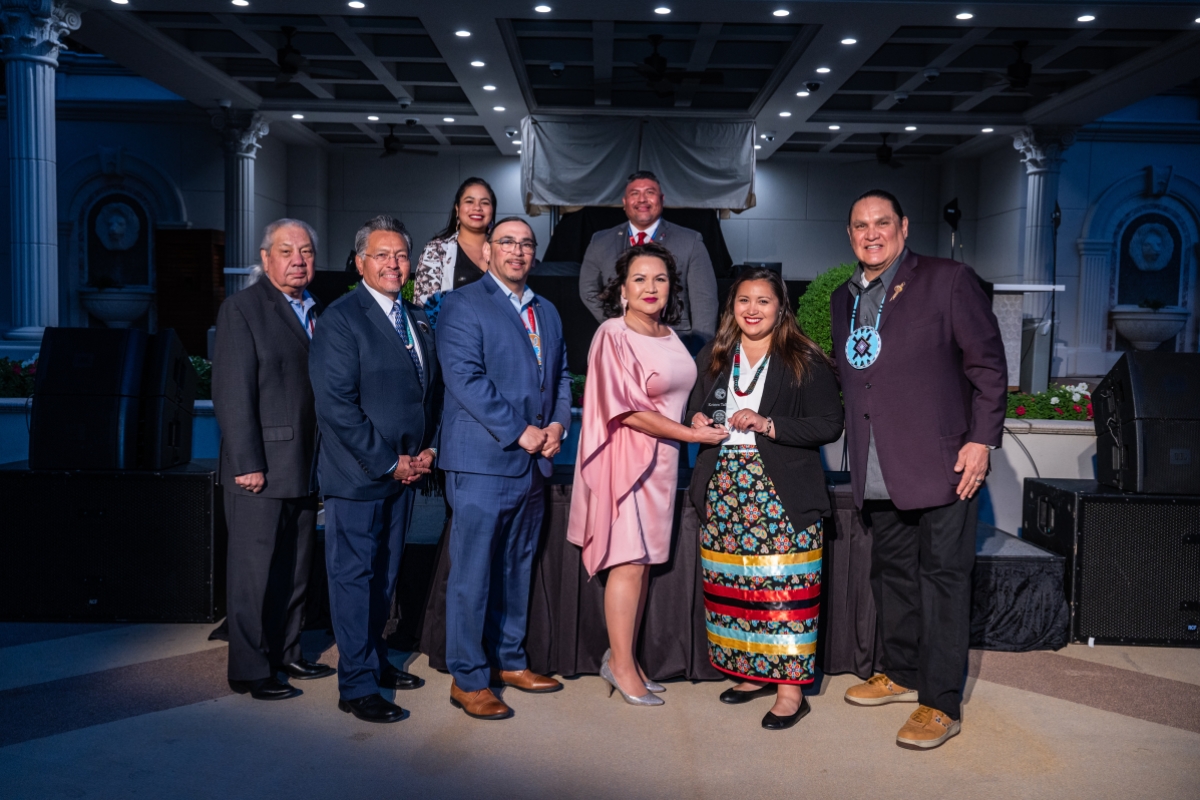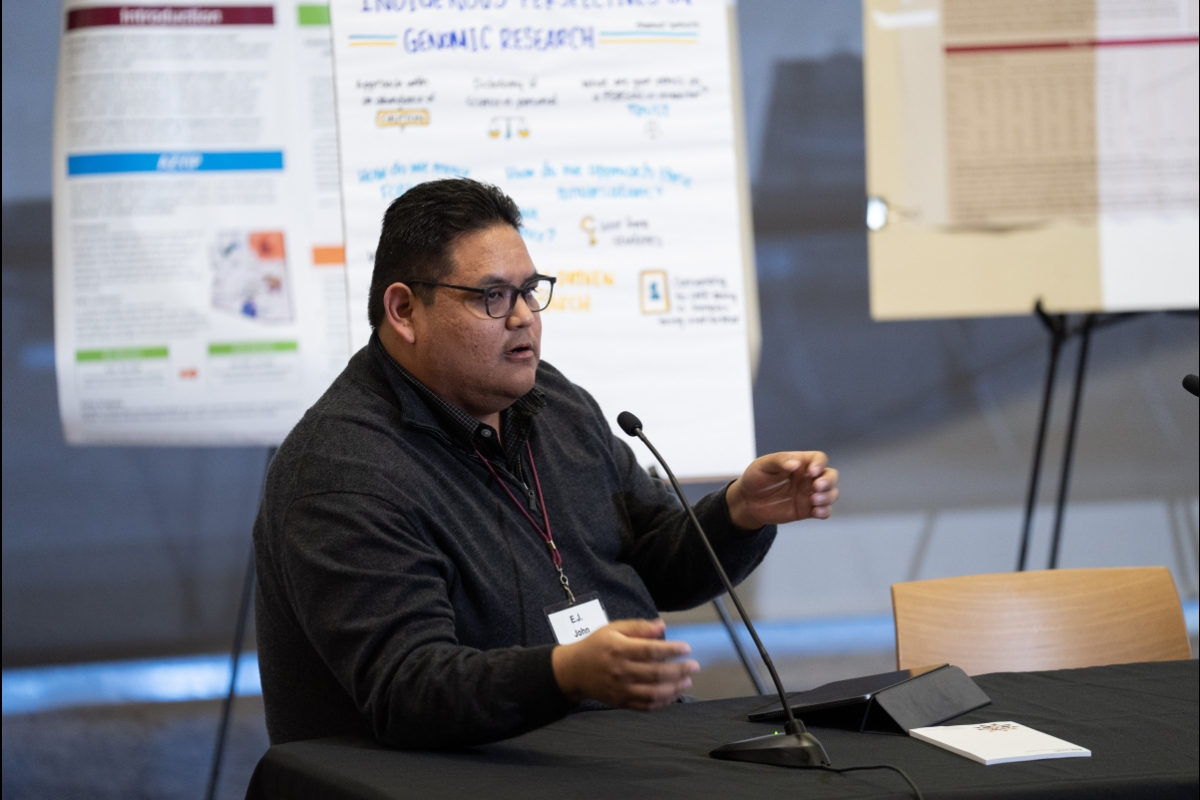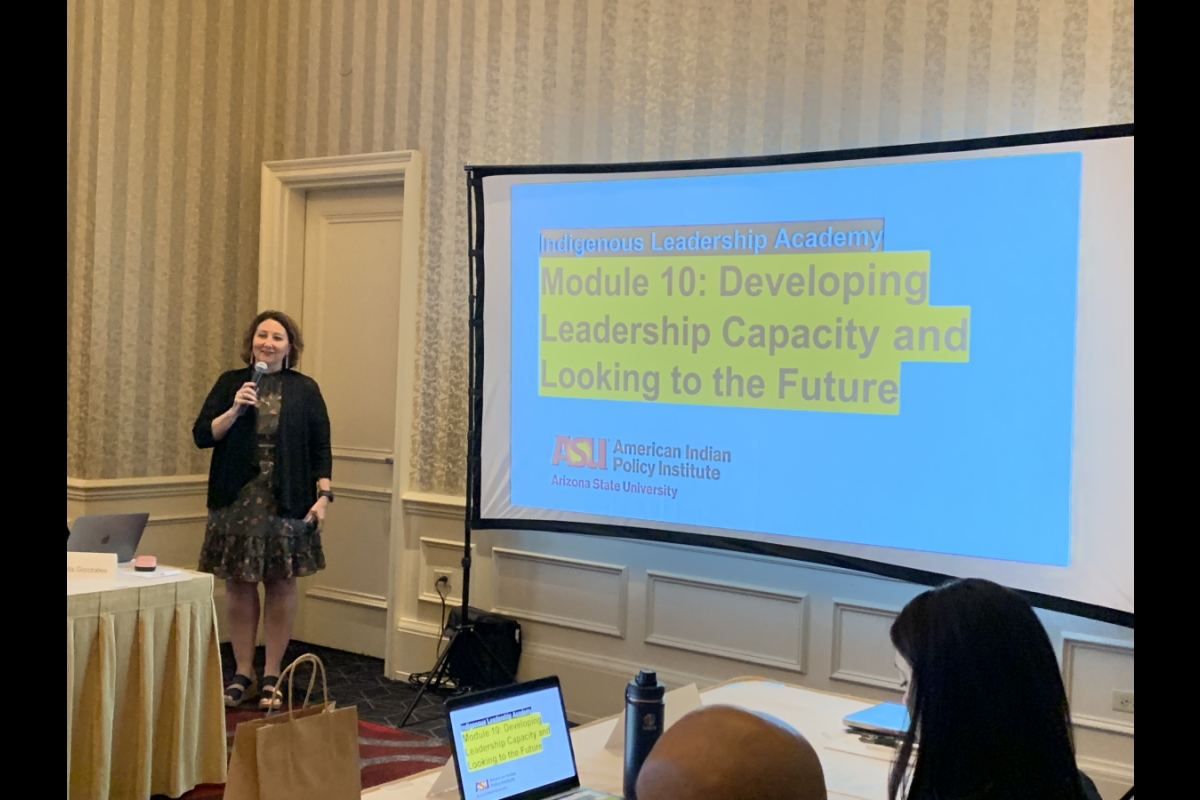American Indian Policy Institute joins the Sandra Day O'Connor College of Law at ASU
The American Indian Policy Institute (AIPI), recognized internationally for its leadership in American Indian policy, has announced its move from the Watts College of Public Service and Community Solutions to the Sandra Day O'Connor College of Law at Arizona State University. The move became official on Jan. 1.
"We are excited to join the Sandra Day O'Connor College of Law," said AIPI Executive Director Traci Morris, who was appointed to the position of research professor within the law school. "ASU Law is one of the top law schools in the country, and we look forward to working even more with their other programs, such as the Indian Legal Program (ILP) and the Center for Law, Science and Innovation (LSI), as we elevate our commitment to tribal digital sovereignty and Indigenous leadership practices."
Founded by Peterson Zah, the first president of the Navajo Nation, in 2006, AIPI was formed as a college-level research and training institute focused on supporting tribal communities and Indigenous peoples nationwide. AIPI provides thought leadership on American Indian policy, providing policy analysis and research, as well as capacity-building programs like the Indigenous Leadership Academy.
Building upon a strong foundation laid by the Watts College — which allowed the institute to flourish, growing its funding, staffing and portfolio of impactful programs — AIPI’s move to ASU Law represents a crucial step in its growth trajectory; the work that AIPI does is grounded in law, and the move will allow the institute to continue its work with the ILP (ILP Executive Director Kathlene Rosier is on AIPI’s advisory board) and others who are working on the cutting edge of law and policy in telecommunications and emerging technologies.
“It has been an honor to support the important work of AIPI over the past four years,” said Watts College Dean and President’s Professor Cynthia Lietz. “We look forward to continued collaboration with AIPI and the law school, as this move serves as an important step in the evolution of the institute. Special thanks to Dr. Traci Morris for her impactful leadership, and to Dean Leeds, for creating this opportunity to further advance ASU’s work with tribal communities through (Morris’) new appointment.”
AIPI is renowned for its expertise and national leadership in tribal broadband policy and digital sovereignty research, and remains the only Indigenous-led organization in the U.S. committed to expanding broadband access to tribal communities. Critical work in the conceptualization of tribal digital sovereigntyTribal digital sovereignty is both the information and the physical means by which that information transfers, governed by a community's policies and codes that control the data, infrastructure and networks. is taking place in AIPI, with a book on the topic in progress and plans to establish a center focused on tribal digital sovereignty within the AIPI in development.
"We are delighted to deepen the partnership between AIPI and ASU Law," said Willard H. Pedrick Dean and Regents and Foundation Professor of Law Stacy Leeds. "AIPI is a leading think tank on American Indian policy, and its work is essential to supporting tribes in their policy endeavors, especially tribal digital sovereignty. This partnership will allow AIPI to increase collaboration with our faculty and students, and help us train the next generation of leaders in American Indian law and policy."
Supported by the AIPI Advisory Board and key funders, including the Ford Foundation, APS, Salt River Project and JPMorgan Chase, AIPI embraces this transition with confidence and enthusiasm.
“As chair of the AIPI Advisory Board, we are thrilled to support the American Indian Policy Institute's relocation to the Sandra Day O'Connor College of Law at Arizona State University,” said Gov. Stephen R. Lewis of the Gila River Indian Community. “This new partnership reaffirms our commitment to fostering collaboration, understanding and progress between the university and American Indian communities. Together, we can create meaningful change and advance the well-being of all.”
More Law, journalism and politics
Can elections results be counted quickly yet reliably?
Election results that are released as quickly as the public demands but are reliable enough to earn wide acceptance may not always be possible.At least that's what a bipartisan panel of elections…
Spring break trip to Hawaiʻi provides insight into Indigenous law
A group of Arizona State University law students spent a week in Hawaiʻi for spring break. And while they did take in some of the sites, sounds and tastes of the tropical destination, the trip…

LA journalists and officials gather to connect and salute fire coverage
Recognition of Los Angeles-area media coverage of the region’s January wildfires was the primary message as hundreds gathered at ASU California Center Broadway for an annual convening of journalists…





